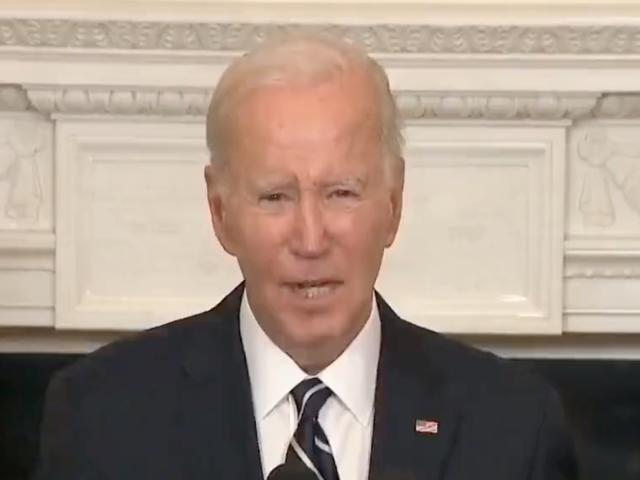In a dramatic pivot that underscores the intricate dance of international diplomacy, the Biden administration, after briefly suspending critical military supplies to Israel, has now revealed a staggering commitment: a proposed arms package valued at over $1 billion aimed at reinforcing Israel's military capabilities. This revelation, reported by "The Wall Street Journal," comes amidst ongoing tensions and regional conflicts that have tested the resilience and strategic foresight of both nations.
The proposed package is a robust assembly of military essentials, featuring $700 million in tank munitions, $500 million in tactical vehicles, and $60 million in mortar bombs. This significant influx of support is slated for delivery over several years, suggesting a long-term commitment to Israel's defense infrastructure. However, the package must navigate through various bureaucratic and legislative checkpoints before it reaches fruition.
U.S. President Joe Biden today Delivered an Official Notification to Congress, informing them that the White House will be moving ahead with an New Military Arms Package for Israel worth over $1 Billion; with the Package reported to include $700 Million in 120mm Tank Shells and… pic.twitter.com/trU5umHQpy
— OSINTdefender (@sentdefender) May 14, 2024
Simultaneously, President Biden continues to wield a cautious stance, maintaining his earlier threat to withhold any arms that could potentially be used for offensive assaults, particularly against civilian centers in the tense city of Rafah, located at the volatile Gaza-Egypt border—a region now under the firm control of the Israel Defense Forces (IDF).
Despite these cautionary measures, Biden has affirmed unwavering support for Israel's defensive needs, especially highlighting continued assistance for the Iron Dome rocket interception system. This system is crucial for shielding Israeli civilians from aerial threats, reflecting a nuanced approach that balances moral imperatives with strategic alliances.
Breaking: President Biden is moving forward on a $1 billion weapons package for Israel, less than a week after pausing a shipment of bombs over a planned Israeli assault on Rafah https://t.co/o9G94wJdYV https://t.co/o9G94wJdYV
— The Wall Street Journal (@WSJ) May 14, 2024
The geopolitical landscape is further complicated by the persistent skirmishes along Israel's northern frontier, where the IDF and Hezbollah forces exchange fire with alarming regularity. This volatile situation has sparked concerns that a more extensive ground operation in Lebanon might become inevitable if diplomatic efforts fail to quell the unrest.
Amid these developments, last month the U.S. Congress approved a mammoth $26 billion aid package, which includes $9 Billion earmarked for humanitarian efforts in Gaza. The bill also bolsters Israel's air defense capabilities, and provides a notable $1 billion for artillery shells. Unlike aid to almost every country the United States provides, Israel does not get actual cash, but the sum is actually credits where Israel is entitled to order munitions.
BREAKING:
— Open Source Intel (@Osint613) April 20, 2024
The United States Congress approved a security aid budget for Israel in excess of $26 billion dollars! pic.twitter.com/3ldMh35i8U
Israel is the only country that receives aid from America that has a net positive effect on the U.S. economy. This is due to the fact that most of the munitions Israel gets are part of a joint development deal, where Israel has innovated and designed the product, and the patent is held jointly between the two nations, and in most cases, the manufacturing is done exclusively in an American factory. Last month's legislative move highlights the complex web of military support, humanitarian aid, and diplomatic efforts that characterize U.S.-Israel relations.
Historically, the Biden administration has occasionally circumvented Congress to expedite military support to Israel, an act most recently seen at the start of Israel's current conflict which it dubbs "Swords of Iron". That Executive Order included a rapid $147.5 million sale of 155 mm artillery shells. Such actions, while seemingly controversial, underscore the strategic imperatives that often guide U.S. foreign policy, particularly in regions as tumultuous as the Middle East. Israel enjoys widespread support in Congress, within both the Democrat and Republican parties. With exception to a minority of Democrat lawmakers on the far-left and a few Republicans, most lawmakers do not protest unilateral presidential moves that serve to assist Israel.
🚨🇺🇸🇮🇱 The Biden Admin informally notified Congress today of a proposed $1.26 billion Foreign Military Sale.
— Colby Badhwar 🇨🇦🇬🇧 (@ColbyBadhwar) May 14, 2024
As previously reported, Israel submitted the Letter of Request for this sale last month, which includes:
$700m in tank ammo
$500m in FMTVs
$60m in mortar ammo https://t.co/OB6EnWg28X
As these multifaceted layers of diplomacy, military strategy, and international law continue to unfold, the commitment of the United States to Israel's security remains a poignant narrative of alliance, fraught with challenges but steadfast in its resolve to navigate the turbulent waters of global geopolitics.


